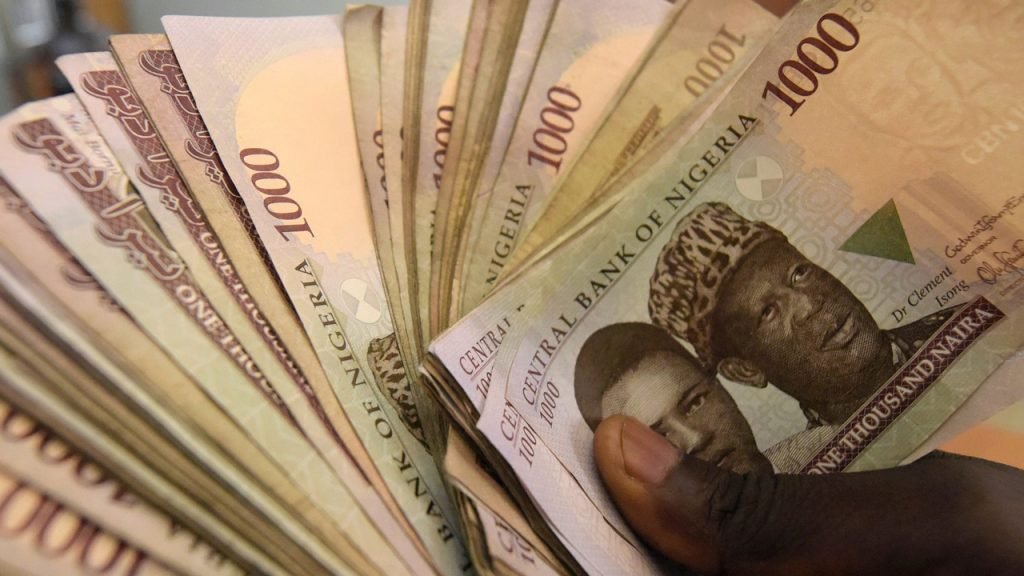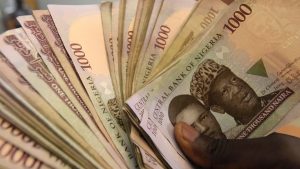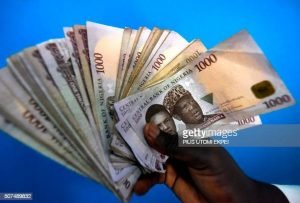
In what might be the beginning of a new world order, China and Russia are consolidating their new alliance, with the two leaders, Xi Jinping a,nd Vladimir Putin pledged to deepen the strategic partnership and bilateral ties as they enter a ‘new era’.
It would be recalled that in February 2022, the countries entered a ‘no limit’ partnership amid resistance from the United States. This year’s talks were meant to cement last year’s partnership.
Prominent on the list of agreements was increased cooperation on economic and business trade using their local currency. Already, the yuan and ruble account for two-thirds of trade deal payments between the two countries.
Amongst the things the agreement addressed was to push forward the planned Power of Siberia two pipeline, which would deliver 50 billion cubic meters (bcm) of natural gas per year from Russia to China via Mongolia.
The agreement also contained their support for the creation of a multilateral, equal, and transparent global management system of the Internet.
Putin has made statements supporting substituting the United States dollar as a settlement currency for international payments. During Jinping’s visit, he said: “We support the use of Chinese Yuan in payments between Russia and countries of Asia, Africa, and Latin America.”
BRICS, a bloc of five economies to reduce Western dominance and build a new world order, has been slowly moving towards their aim. With a template from European Member countries, who agreed that the official currency of exchange is the Euro, BRICS is looking towards a common currency.
In line with this, the Reserve Bank of India (RBI) approved central banks from 18 countries including Tanzania, Kenya, and Uganda to open special Vostro Rupee Accounts (SVRAs) that will allow them to settle payments in Indian rupees.
Recently, the yuan became the second most important currency in Brazil’s foreign exchange reserves as the latter signed an agreement with China to drop the dollar.
The report, which was made known by its central bank, is a reflection of the deepening economic ties with Brazil’s biggest trading partner.
Until 2018, the yuan was absent from Brazil’s foreign reserves and now accounts for 5.37 percent of Brazilian central bank holdings at the end of 2022, surpassing the euro’s 4.74 percent share.
Earlier this year, China and Brazil moved to reduce the dominance of the dollar by signing an agreement on setting up yuan clearing house arrangements that would facilitate bilateral trade and investment.
China is the main buyer of iron ore, soybeans, meat, sugar, and pulp exports from Brazil.
In its annual report on reserves, the Brazilian Central Bank said there were no significant variations in the composition of the portfolio compared to the previous year, when it had sought to diversify its strategic allocations, including increased exposure to Yuan and gold.
Brazil’s total foreign reserves fell to $324.70 billion in 2022 due to a 7.45 per cent drop in portfolio returns, caused by rising interest rates in the United States and the appreciation of the dollar against other currencies.
Though there are speculations that China would leverage this to push the yuan as the official currency, there are also concerns that because the bloc members are not of one continent, the attempt might not be feasible.
A professor of economics at the Lagos Business School, Bongo Adi, said the attempt to reduce Western dominance would give developing countries the courage to seek other options in managing their reserve and foreign exchange, adding that in economics competition has always been a good, but over time, international foreign exchange market system has been lopsidedly monopolistic.
He stated that conditions have changed, as we no longer have a singular global hegemon, because it is now a multipolar world with countries like China, India growing in power.
According to him, the impact of this decentralised monetary system that countries would have better control of their currencies, which would create better stability and lower the risk of currency fluctuations around the globe.
Adi explained that dollar emerged as the currency for international reserves after the Second World War even though it was the only country among world powers to come out of the global recession of 1930s. They used a combination of monetary and microeconomic policies to grow the currency.
There is competition right now so countries can choose to keep their foreign reserve in dollar, rubble, yuan or even cryptocurrency. These are all new holds of power as far as the modern economy is concerned.
For Nigeria, he said that the current government took Nigeria out of Mexico, Indonesia, Nigeria and Turkey (MINT) bloc and reduced the nation’s chances of getting into BRICS. These actions have made the Nigerian economy not competitive.
He added that Nigeria can benefit from Russia’s sale of oil in the ruble, it gives Nigeria bargaining power but lies in the hands of leadership.
“If the government demands that countries that purchase its oil pay in Naira, the currency would appreciate, inflation would be curbed,” Adi said
He said he expects that America would have anticipated the move by the powers and would respond in the coming days.
Partner, G. ELIAS & Co, Gbolahan Elias, said that based on geography, he does not envision a challenge for BRICS because they are not all in a continent, citing examples with G7 that pans through continents, North America to Australia.
He, however, expressed concern over their choice of membership, stating that Nigeria instead of South Africa should have been in the bloc because of its great economy and population.
He mentioned that because America remains the biggest trading partner of all countries in the bloc, there might be a limit to what they can achieve, added that they also lack strong institutions or treaties binding them together.
For Africa, he said a single currency project for the continent is premature as the countries are at different stages of economic growth and have more business relations with countries outside the continent than within.
He added that none is too dominant for others to see value in adopting the currency.
“Within West Africa, there is a chance that the naira can become the dominant currency. But we have the challenge of the Francophone countries who are in the majority and have close ties with France,” he said.
Senior Research Fellow, Nigerian Institute of International Affairs (NIIA), Joshua Bolarinwa questioned the sustainability of using yuan in trade transactions, given that it would take a long time for any currency to challenge the supremacy of the dollar.
He said that the Naira-Yuan swap was not accepted by Nigeria, which was interested in loans for financing infrastructural development. China in turn decided to embark on the needed infrastructural projects and receive oil as payment for work done.
“That’s why we see Chinese people constructing roads, railways and airports,” he said.
According to him, in the volume of trade, China is yet to match India and America in Nigeria. Apart from the government which has a large chunk of employment for Nigerians, the next biggest employer of labour is India.
Bolarinwa noted that some people in the academia at the policy level opined that Nigeria should join BRICS for economic reasons and because South Africa is a part of the bloc.
He, however, said that Nigeria should wait to be invited to join BRICS so we can to maximise the nation’s bargaining power because they offer value such as quality, population, market and business.
He added that though Nigeria and Russia do not have robust trade relations, in cases of security, Russia has been helpful.
Editor-in-chief/Publisher of Africa China Economy Magazine, Ikenna Emewu, said the effort of BRICS is not out of place because the International Monetary Fund (IMF) and World Bank have since December 2016 adopted yuan as a medium of international exchange into Special Drawing Right (SDR).
He stated that BRICS is deliberately strengthening itself especially as it cuts across four continents of the world – Africa, South America, Europe and Asia, because of NATO expansion.
He opined that there are no immediate implications of trading in Yuan to the Nigerian economy because in September 2018, Nigeria adopted the Naira-Yuan swap, where up to 4 billion dollars was mapped out for the exchange, which was signed by Central Banks in both countries.
He, however, said that during my interview with the former consul General of China, he discovered that the Central Bank of Nigeria (CBN) didn’t manage that diplomatic or bilateral deal properly.
“CBN had announced that 45 per cent of international trade done by Nigerians is with China and so there was no need to keep changing naira to dollars, then to Yuan, so they got into a deal. China and Kenya, Egypt and about eight countries in Africa got into such a deal, but it wasn’t properly managed in Nigeria. Therefore it couldn’t fly. There was no Yuan for Nigerian international business people to buy.
“Note that before Former president, Goodluck Jonathan, left office, he signed a deal authorising an executive order that about four per cent of Nigeria’s foreign reserve should be domiciled in Yuan,” he said.
Emewu stated that If Nigeria implements better, she would gain from trading in dollars, euro, pounds and Yuan because the hub of global trade is China as it controls 30 per cent.
He however said that trading with Yuan by Nigeria does not mean the nation has brokered an alliance in the NATO/Russia tussle over Ukraine.
“Trade is open, even the NATO countries still trade with Russia. So Nigeria should not allow herself to be bullied to believe that trading in Yuan would amount to an alliance with China/Russia bloc. Even in the presence of war, World Bank and UN got into a deal with Russia and Ukraine to allow grains leave to the world markets to avoid crippling food supply, economy or endanger food balance globally,” he said.
Acting Director of the Research and Studies Department, NIIA, Efem Ubi, said the advantage of the naira-yuan swap is that it eliminates the third party in trading.
He explained that The recent global happenings about sanctions due to Russia/Ukraine war have produced a ripple effect, where countries are now skeptical about the international economic system run by the West.
He recounted that historically, developing countries were not part of the economic system, but were only integrated into it after gaining independence.
“So most financial liquidity arrangements across the globe was already existing so developing countries had to fit into it.
“The ongoing war led to restricted financial services, Russians couldn’t do anything with the master card for instance. So a lot of countries are afraid of the future of the dominant currency,” he added.








